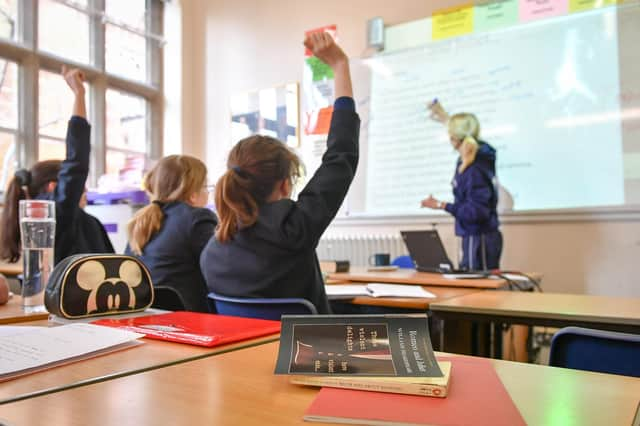Thousands of pupils missing over 'one in ten' lessons


Department for Education figures show 4,549 out of 19,490 pupils in the area missed at least 10% of lesson time in the 2021-22 academic year – meaning 23.3% of pupils were classed as persistently absent.
This is significantly up from 11.6% the year before and 12.5% in 2018-19, the last full academic year before the pandemic.
Advertisement
Hide AdAdvertisement
Hide AdThe overall absence rate in South Tyneside schools rose substantially from 4.6% to 7.5%.
The coronavirus pandemic was the primary reason for the significant rise in pupil absences.
The figures also show 266 pupils (1.4%) in South Tyneside were classed as severely absent throughout the academic year – missing at least 50% of lessons, and up from 166 in 2020-21.
Across England, 1.6 million pupils were persistently absent, more than double the 800,000 who missed at least 10% of their lessons in 2018-19.
Advertisement
Hide AdAdvertisement
Hide AdThe persistent absent rate sat between 10% and 12% in recent years but jumped to 22.5% in the last academic year.
The Association of School and College Leaders (ASCL) said schools have worked "very hard” to improve attendances but have received little support from local authorities due to government cuts.
Julie McCulloch, director of policy at the ASCL, said that while absence rates were affected by the pandemic, attendance rates remain “extremely challenging due to escalating rates of poverty, poor mental health and abuse and neglect, compounded by an erosion in the provision of local support services over the past decade.”
She added: "Schools work very hard to encourage good attendance but have little support as local authority attendance services have also reduced as a result of Government cuts.
Advertisement
Hide AdAdvertisement
Hide Ad"We need a nationwide attendance strategy which supports struggling families and schools."
A Department for Education spokesperson said: "The vast majority of children are in school and learning.
"We work closely with schools, trusts, governing bodies, and local authorities to identify pupils who are at risk of becoming, or who are persistently absent and working together to support those children to return to regular and consistent education."